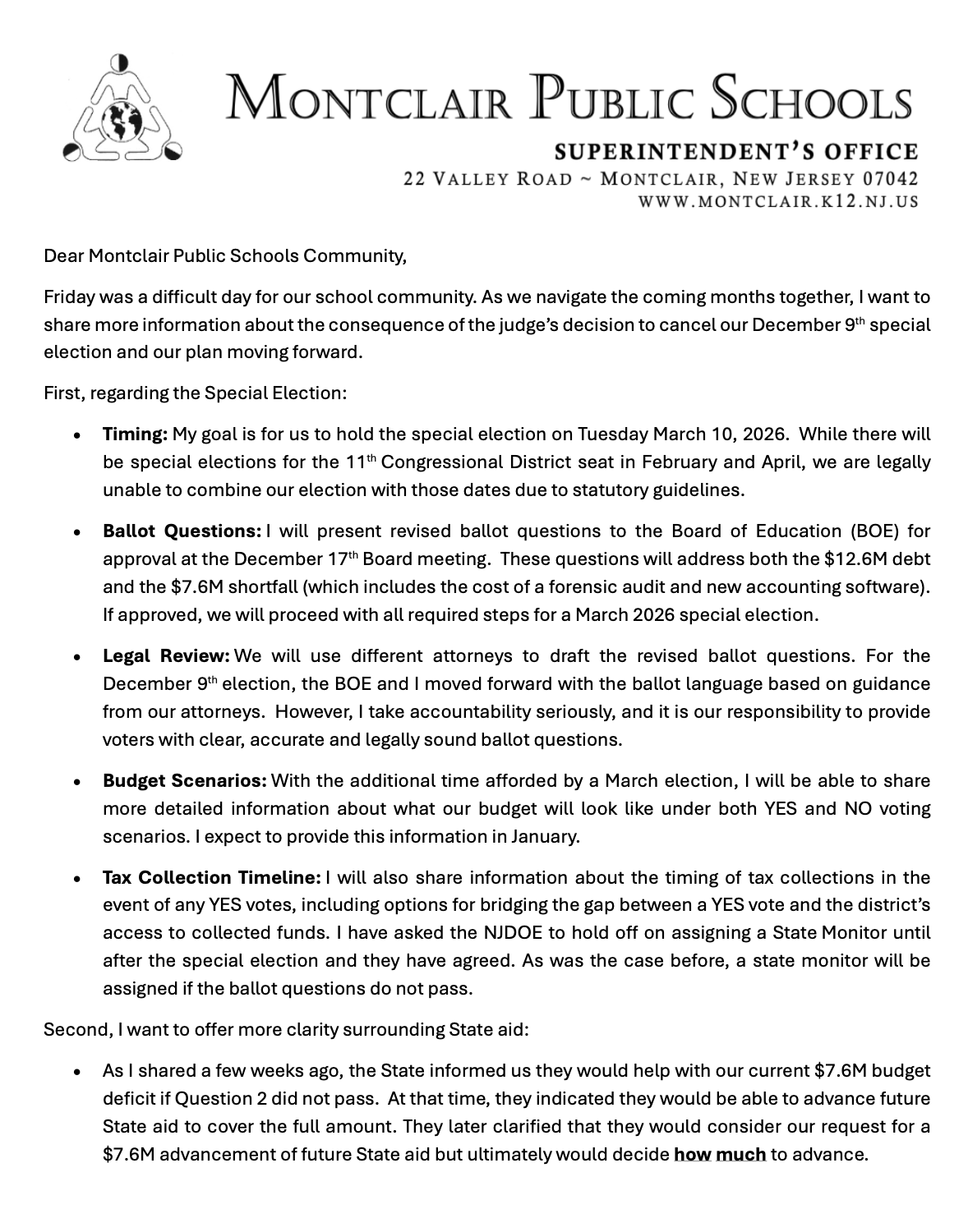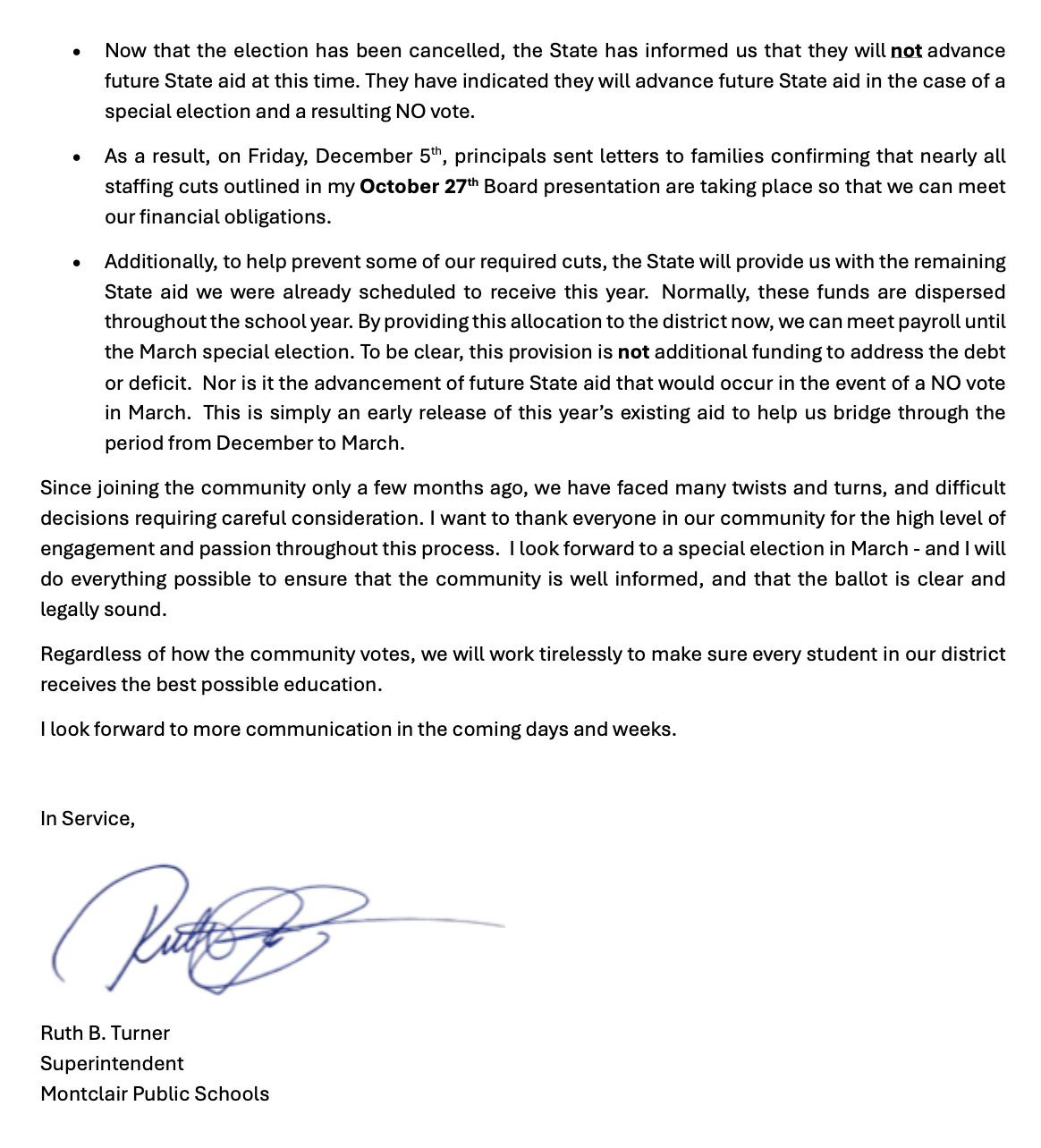Save Montclair Schools
Last updated: Dec. 2, 2025
• Montclair schools face a $19.6M budget crisis.
• The December 9th special election—intended to determine how to cover school costs—was canceled by a judge's ruling.
Latest Updates: Special election postponed to March
• Following a public hearing on December 2nd, a judge ruled to cancel the December 9th special election.
• Superintendent Turner put out a detailed statement on December 8th.
• The Montclair Public School system asks the community to share input on the 2026-2027 budget planning survey. Deadline is January 30th.
We are working to reflect the most up-to-date information. Thank you for all your hard work on this critical effort!
How did we get here?
Mismanagement by the previous administration
The prior Superintendent and Business Administrator accrued $12.6M in unpaid invoices from previous years (busing, food service, out-of-district placements, etc.) and created a 2025–2026 budget that falls $7M short.
They did not disclose this to the Board of Education or the public. A review by the current administration found no missing or stolen funds — just years of spending beyond the approved budget.
Economics of running a school are getting harder
In Montclair, over 80% of school funding comes from property taxes. State law caps property-tax increases at 2% per year, but inflation and school costs are rising faster, so revenues cannot keep up with expenses.
At the same time, state and federal rules require more services for our most vulnerable students, while state and federal funding for those services has declined.
Why trust the new administration?
Overhauls to operating procedure
Checks and balances to pay for bills
Every expense tied to a budget line
Separation of powers to limit individual authority
Real-time alerts to flag budget overruns
Public Q&A and quarterly town halls
Detailed, line-item budgets
Monthly public dashboards
Accountability in Action
Transparent dialogue: 5+ Town Halls in four months plus countless meetings with community groups and concerned citizens. Furthermore, formerly closed Board of Education sessions are now open to the public.
Immediate fixes: Comprehensive financial record review, a new auditing firm, and overhauls to operating procedure in the Central Office.
Courage under pressure: Superintendent Turner has already done what previous administrations have failed to do: publicly address the difficult budget situation and outline the cuts needed to operate in that environment.
Check out the Superintendent's detailed plans for increased accountability:
Save Montclair Schools is a political committee formed by a grassroots group of volunteer parents who support all Montclair public schools.


